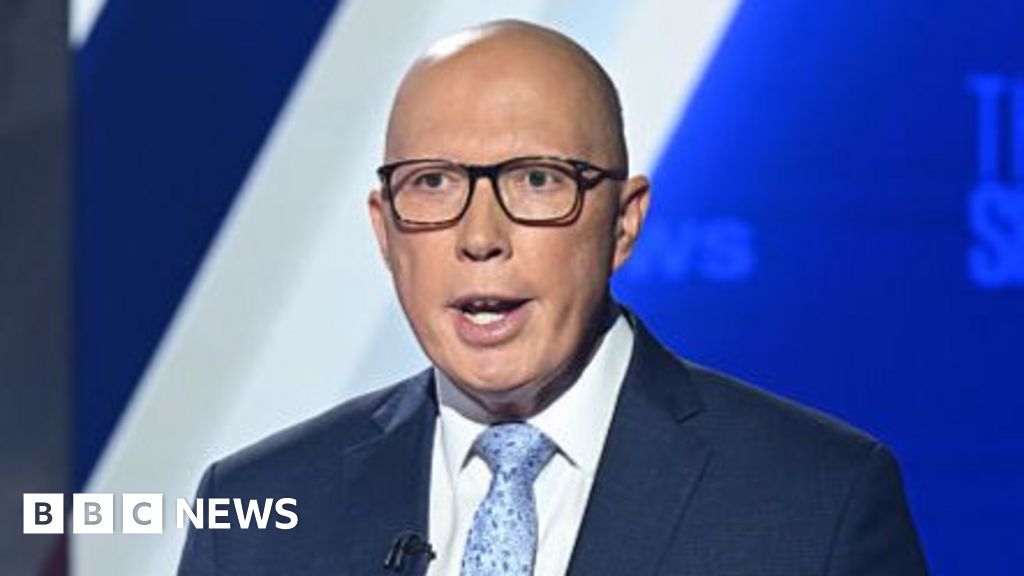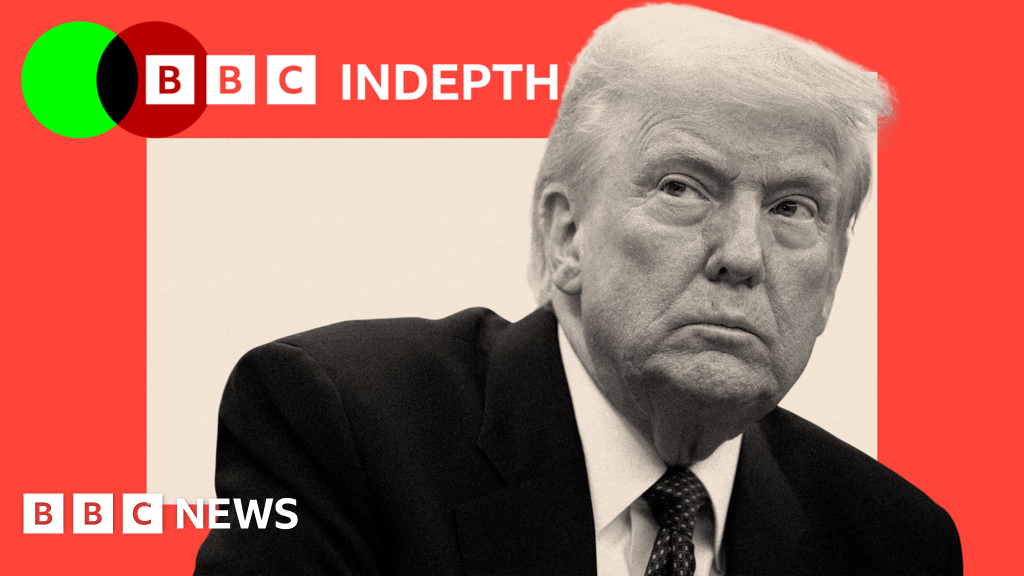Trump Faces Challenges Uniting Republicans for Budget Bill

As the legislative session resumes, Congress finds itself at a critical juncture, with lawmakers preparing to transform President Trump's ambitious domestic policy agenda into a comprehensive multi-trillion dollar budget bill. This proposed legislation aims to cover a wide range of areas including tax cuts, significant funding increases for the Pentagon, and enhanced border security measures, all while attempting to balance costs through corresponding cuts.
Despite the Republican Party's control of both the House and Senate, party members are grappling with the challenge of achieving consensus on significant components of the budget plan. Deep divisions within the party complicate the budget framework that dictates how committees should proceed with their work. Recently, the House narrowly passed the initial budget resolution before taking a two-week recess, and now they are gearing up for the next legislative steps.
The Republicans' strategy hinges on a legislative vehicle known as reconciliation. This process allows them to bypass the usual 60-vote requirement in the Senate, enabling them to advance their budgetary priorities more efficiently. At this stage, various committees are diligently working to adhere to the budget instructions, which mandate specific changes to revenue, deficits, spending, and the debt ceiling. Eventually, the budget committee will compile all committee-drafted legislation into a single legislative package that both chambers will need to vote on.
However, the path to achieving this goal is fraught with difficulties that will test the unity of the GOP, especially given their slim majorities in both chambers. Josh Chafetz, a law professor at Georgetown University, noted the importance of cohesion within the party, stating, "They have a very slim majority. Can they actually keep the entire conference together in both chambers? We haven't really seen many tests of that yet because there's been so little legislative activity." House Speaker Mike Johnson, R-La., has set an ambitious timeline, aiming to have the legislation ready for President Trumps approval by Memorial Day, a target that seems increasingly elusive.
Disagreements abound within the party, particularly regarding the scale of spending and cuts. Republicans are working towards drafting a legislative package that would extend the 2017 Tax Cuts and Jobs Act while implementing additional reductions in spending, raising the debt ceiling, and increasing defense allocations as well as resources for security along the U.S.-Mexico border.
However, these proposals have met with significant contention among Republican lawmakers. House committees have been tasked with identifying at least $1.5 trillion in spending reductions, while the Senate has set a dramatically lower goal of just $4 billion. Sarah Binder, a politics professor at George Washington University, pointed out the growing pressures on fiscal conservatives, noting that "deficits have grown in the years since the Trump tax package was first passed," and that many lawmakers are now grappling with the reality of enacting substantial cuts while simultaneously advocating for lower taxes.
To successfully advance the budget blueprint through the House, Senate GOP leaders have publicly committed to pursuing deeper cuts than those proposed in the original resolution. Nevertheless, bridging this substantial divide poses a formidable challenge. Jessica Riedl, a senior fellow at the Manhattan Institute, commented on the historical difficulties Republicans face in translating abstract discussions about deficit reduction into concrete policy actions. "Now they have to roll up their sleeves and figure out how to dramatically cut Medicaid, student loans, and food aid programs that are popular not only in Democratic districts, but in a lot of Republican districts as well," she explained.
Medicaid, the federal-state health insurance program designed for low-income adults and individuals with disabilities, will likely become a flashpoint in the budget negotiations. The House has instructed the Energy and Commerce Committee to find $880 billion in savings from Medicaid over the next decade, a demand that has sparked fierce resistance. Several Republican lawmakers, including Missouri Senator Josh Hawley, have pledged to oppose any budget that would lead to cuts in Medicaid benefits. Recently, a dozen House Republicans sent a letter to the chairman of the Energy and Commerce Committee and House leadership, expressing their unwillingness to support any bill that results in a reduction of Medicaid coverage for vulnerable populations. The letter articulated their view that "balancing the federal budget must not come at the expense of those who depend on these benefits for their health and economic security."
Speaker Johnson has publicly asserted his commitment to "protect the benefits that everyone is legally entitled to," asserting that the search for savings will focus on identifying "waste, fraud, and abuse." Yet, experts warn that this approach may fall short of achieving the ambitious $880 billion target. As Riedl succinctly put it, "This is going to tie Republican lawmakers in knots." The promise to protect major spending programs while simultaneously pursuing significant cuts creates a challenging paradox for lawmakers as they move forward.
As tensions rise among lawmakers who are torn between their commitment to avoid cuts to popular programs and their need to deliver on deficit reduction promises, the stakes for the GOP are becoming increasingly high. Bobby Kogan, a former Senate Budget Committee staffer now serving as the senior director of federal budget policy at the Center for American Progress, highlighted the predicament facing Republicans as they weigh their options. "The problem for Republicans right now," he stated, "is they're going to have to deal with doing the largest Medicaid cuts of all time or breaking the promise to the people who only went forward because they thought they were going to get the largest Medicaid cuts."
Compounding these issues are looming time constraints. Republicans are also eager to leverage this budget bill to raise the debt ceiling. Analysts predict that the federal government may reach its borrowing limit by the summer, underscoring the urgency of their legislative agenda. Additionally, the reconciliation process imposes a deadline of September 30 for passing the bill, or else they risk forfeiting the benefits associated with the budget process.
This compressed legislative timeline adds pressure as they approach the summer season. Binder emphasized the implications of the approaching deadline, stating, "Otherwise, the budget resolution in the Senate loses its privilege if it's expired."
Discussions around the budget will inevitably involve debates over the so-called "current policy baseline," a term that will likely see increased usage in the coming month. This concept essentially allows Republicans to frame the nearly $4 trillion in tax cut extensions as cost-free. The approach, advocated by some Senate Republicans, suggests counting the 2017 tax cutswhich are set to expire this yearas ongoing policy without any financial implications for their extension.
Critics of this strategy argue that it resembles a budget gimmick that could ultimately worsen deficit levels by adding trillions to the national debt. Maya MacGuineas, president of the bipartisan Committee for a Responsible Federal Budget, voiced strong opposition to such maneuvers, stating, "This ad-hoc, inconsistent, manipulative, and disingenuous approach to budgeting is enough to make your head explode, and it is going to make the debt explode." She further criticized Congress for failing to engage in honest budgeting practices.
Deficit hawks within the party remain unconvinced that this strategy will yield the necessary spending cuts they have been promised, raising the stakes for the ongoing negotiations. As the situation unfolds, the influence of former President Trump may play a pivotal role in the negotiations. Unlike during his first term when his involvement was more hands-off, Trump is now actively engaging with lawmakers, reaching out to them directly to rally support for his priorities and signaling potential consequences for those who do not comply. Kogan encapsulated the gravity of the situation, noting, "It's all well and good to have a red line. But one question that members are going to have to figure out is what do you think of your red line when Donald Trump calls you up and says, vote for this or you're dead to me?"

























